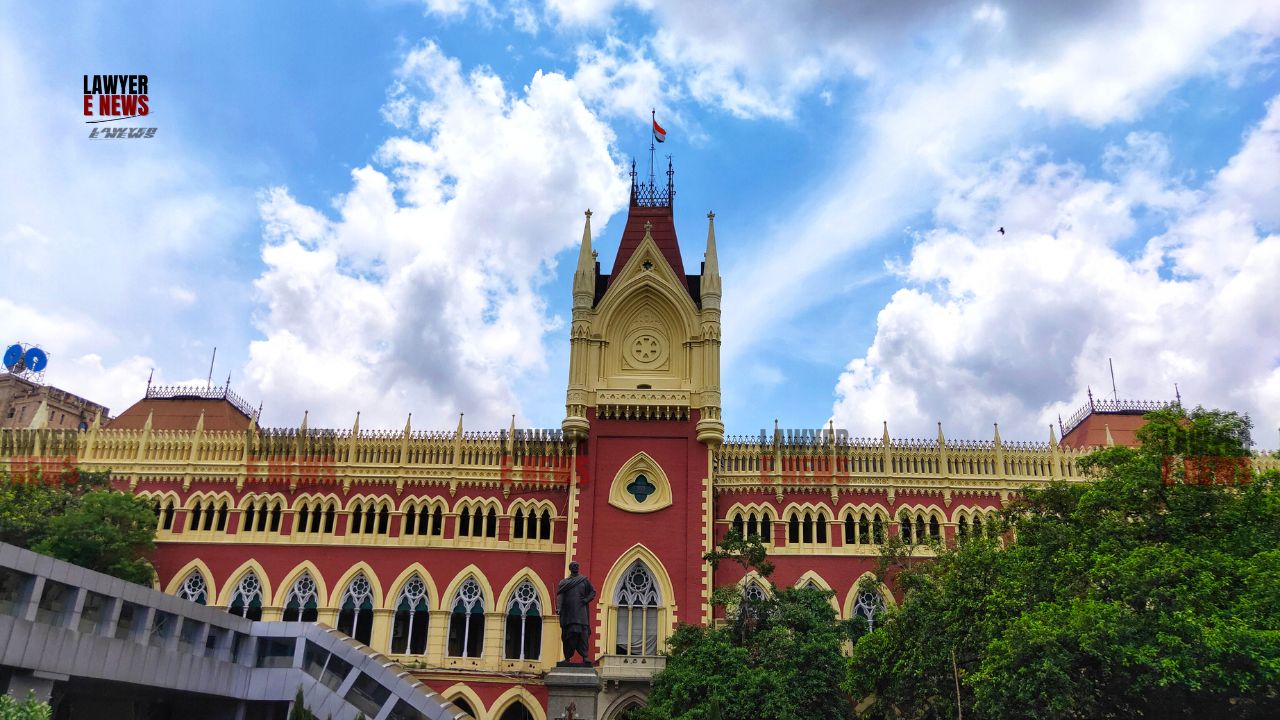-
by Admin
15 February 2026 5:01 PM



High Court of Calcutta dismissed an appeal challenging the denial of mutation of property located at 15A, Armenian Street, Kolkata. The Court upheld the findings that the property vested with the State of West Bengal under the West Bengal Thika Tenancy (Acquisition and Regulation) Act, 2001 as a Khatal (cattle shed). The Court also reaffirmed the imposition of Rs. 25 lakh costs on the appellants for suppression of material facts and upheld the initiation of criminal proceedings under Section 340 of the Criminal Procedure Code, 1973 (CrPC) for filing misleading claims.
The appellants sought mutation of the property based on a registered deed of conveyance dated June 14, 2008, alleging ownership of the premises. However, the Kolkata Municipal Corporation (KMC) declined to process the mutation application, citing that the property had already vested in the State as per an order passed by the Thika Controller on January 28, 2011, in Misc. Case No. 26 of 2009. The appellants challenged the KMC's inaction through a writ petition, which was dismissed by the Single Judge on April 21, 2021, with costs of Rs. 25 lakhs and directions to initiate criminal proceedings. The appellants then filed the present appeal.
Ownership and Mutation Rights: The central question was whether the appellants had any ownership rights to claim mutation of the property, given that the property was declared a Khatal and vested with the State under the West Bengal Thika Tenancy Act, 2001.
Jurisdiction of the Thika Controller: The appellants contended that the Thika Controller acted beyond its jurisdiction in declaring the property as a Khatal.
Suppression of Material Facts: The appellants allegedly suppressed their participation in the 2009 proceedings before the Thika Controller and failed to disclose the January 28, 2011, order while seeking relief from the Court.
Costs and Criminal Proceedings under Section 340 CrPC: The appellants disputed the imposition of costs and the direction to initiate criminal proceedings for their alleged misconduct.
The High Court upheld that the property had vested in the State as a Khatal under Section 4(b) of the Thika Tenancy Act, 2001 as of January 18, 1982. The Court emphasized:
"By reason of the vesting of the subject land with the State under the Act of 2001, on and from January 18, 1982, the appellant No. 1 had no right, title, and interest in respect of the subject property to pass on to the appellant No. 1 on June 14, 2008. No right has therefore accrued to the appellants to apply for mutation." [Paras 64-65]
The Court dismissed the appellants' argument that the Thika Controller lacked jurisdiction to declare the land as a Khatal. It clarified that while the Thika Controller's primary jurisdiction was to decide Thika tenancy disputes, determining the nature of the property as part of such proceedings was well within its ancillary jurisdiction:
"The Thika Controller had jurisdiction to decide whether or not the subject land was a Thika land. In deciding so, it arrived at the finding that the land was a Khatal and had vested in the State. This determination cannot be said to be beyond jurisdiction." [Paras 47, 62]
The Court relied on precedents, including Kiran Singh vs. Chaman Paswan (AIR 1954 SC 340) and Foreshore Cooperative Housing Society vs. Praveen D. Desai (2015) 6 SCC 412, to affirm that findings within ancillary jurisdiction are valid unless challenged.
The Court found the appellants guilty of deliberate suppression of their participation in Misc. Case No. 26 of 2009 and the resulting order dated January 28, 2011. The appellants also relied on an unverified document dated December 30, 2016, which purportedly amended the 2011 order but lacked authenticity. The Court noted:
"The appellants approached the writ court with unclean hands by suppressing the proceedings under the Act of 2001 and their participation therein. Even if the appellants were unaware of the 2011 order, they had an obligation to disclose the pendency of proceedings under the Act." [Paras 67-75]
The Court justified the imposition of costs of Rs. 25 lakhs and the initiation of proceedings under Section 340 CrPC, emphasizing the appellants’ misconduct:
"A litigant who pollutes the stream of justice or touches the pure fountain of justice with tainted hands is not entitled to any relief. The appellants' deliberate suppression and misrepresentation justify the imposition of costs and penal sanctions." [Paras 70, 73]
The Court cited Kusha Duruka vs. State of Odisha (2024 INSC 46), emphasizing that suppression of material facts constitutes fraud on the Court.
The High Court dismissed the appeal, affirming the Single Judge's findings and orders. The appellants were held not entitled to mutation or any relief. The Court extended the timeline for compliance with the Single Judge’s directions, including payment of costs and initiation of Section 340 CrPC proceedings, by seven days.
Date of Decision : December 12, 2024
